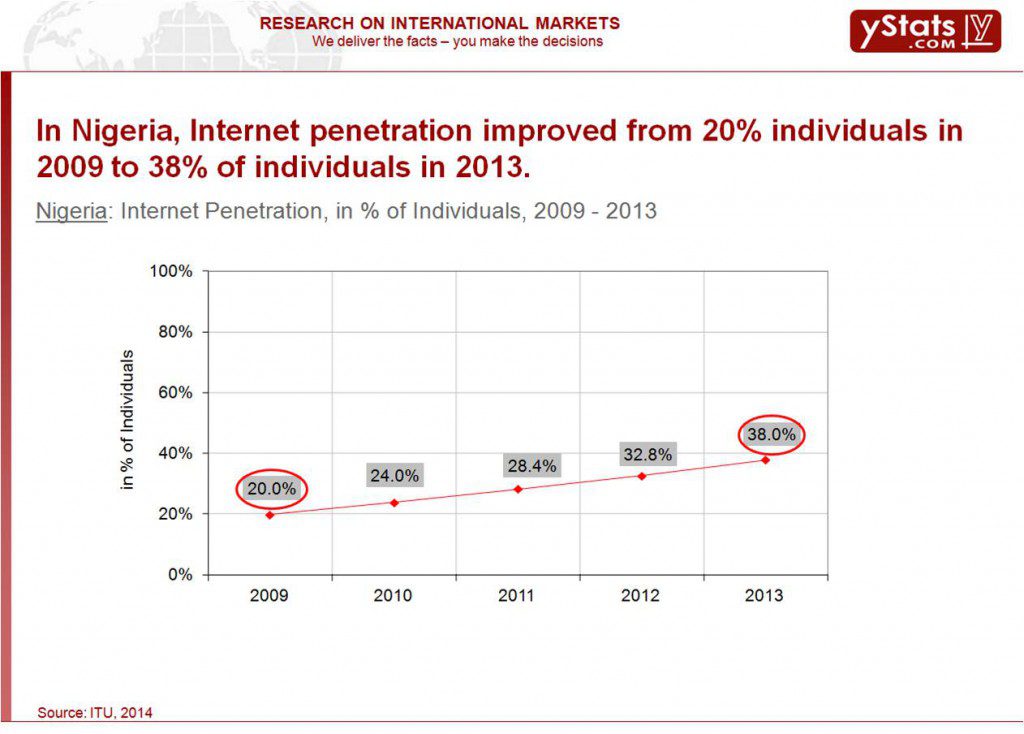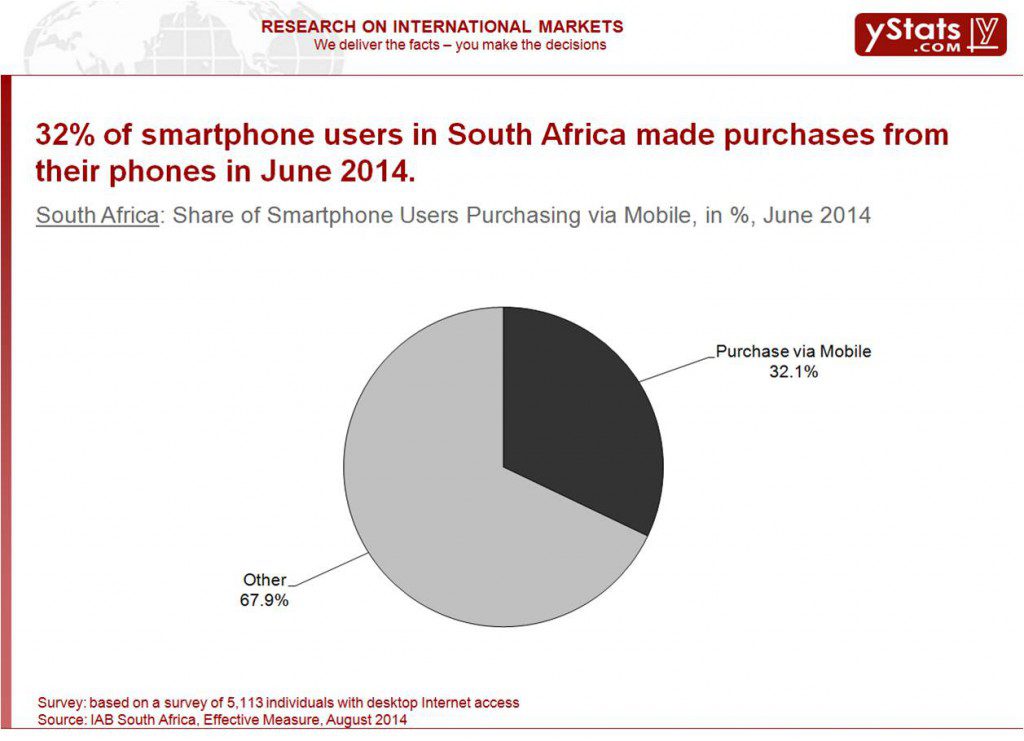A newly released publication by Hamburg-based secondary research organization yStats.com, “Sub-Saharan Africa B2C E-Commerce Market 2015,” indicates that though still suffering from high levels of extreme poverty and poorly developed infrastructure, Sub-Saharan Africa is one of the future hopefuls of the global online retail market. Rising Internet penetration, especially mobile, and spread of cash alternatives such as mobile money and growing activity of online merchants are expected to stimulate the development of B2C E-Commerce.
South Africa and Nigeria are the regional leaders in online retail development. While South Africa has been in view for years as an important emerging market, Nigeria is the rising star. Being the region’s most populous country, it has already topped South Africa in size of economy and exceeds all other countries by number of Internet users and mobile phone owners. Online merchants Jumia and Konga are among the country’s most popular websites. Jumia has already expanded beyond Nigeria to other markets in the region, but both countries received substantial investment to fortify their positions in the domestic market, as the launch of PayPal in Nigeria in 2014 is expected to bring more international competition.
Still, South Africa is significantly ahead by such important infrastructure indicators, such as Internet, smartphone and payment card penetration. An important development in South Africa is the declining share of online spending occurring on foreign websites. Fear of hidden charges and convenience of buying from local merchants are cited as major reasons for not buying cross-border. Nevertheless, the US-based global merchant Amazon ranks among the most visited E-Commerce websites in the country, while the two largest South African online merchants Kalahari.com and Takealot.com decided to merge to join forces against increased local and international competition. Overall, South African B2C E-Commerce market potential is still largely untapped, as online accounted for only slightly more than 1% of total retail sales last year.
Notably, Kenya is the region’s leader in all aspects of mobile: mobile connections account for 99% of all Internet subscriptions in the country, while the number of people using mobile payment services has been growing each year, leading to a significant double-digit number in 2014. Still, the country’s E-Commerce market is smaller than that of some other African countries, though by mobile shopper penetration it ranked first together with Nigeria.
Mobile technology is also helping infrastructure for online shopping to develop in Rwanda, where 4G Internet was rolled out in 2014, and in Senegal, where close to 100% of Internet subscriptions are mobile. Senegal has also seen the entrance of new E-Commerce players in 2014, including the French online merchant Cdiscount and regional E-Commerce marketplace operator Kaymu.




